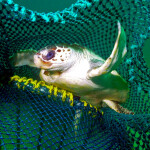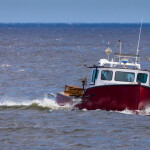Ahead of next year’s parliamentary election in Norway, the present government’s main opposition, Høyre – the Conservative Party – has outlined plans to significantly reduce the country’s controversial aquaculture resource rent tax, which has caused significant disruption for many of the country’s salmon farmers.
In a draft manifesto of its party platform, released 8 September, Høyre called for a reduction of the resource tax, which imposed a 25 percent tax on profits made from the seawater growth phase of salmonid production effective from 1 January 2023. It also pledged to improve conditions for the aquaculture industry.
"The aquaculture industry can be one of the really big growth industries in the Norwegian economy in the future, but we must have a tax system that unleashes the growth and creative power that lies along the entire coast,” Høyre Deputy Leader Henrik Asheim said in a statement.
Høyre is considering a reduction of the tax to 15 percent, according to Asheim.
“There will be a lower tax burden,” he told E24.
The Conservative Party has previously pledged to eliminate the tax if it returns to power but is now proposing a reduction instead, in response to feedback from the industry and its desire for predictability, E24 reported. But, the party won local elections in 2023 and is favored to beat the ruling Labor Party in the national election planned for 8 September 2025, and if it wins enough seats in the Storting – Norway’s parliament – it may reconsider scrapping the tax.
Following the resource tax’s introduction, a number of the country’s largest salmon companies responded with cuts to planned investments. Share prices of most publicly traded Norwegian salmon firms increased in the wake of Høyre’s announcement.
The Conservative Party’s draft manifesto praises the fisheries and aquaculture industry as attaining the status of Norway’s second-largest export industry and for its reputation as a world leader in supplying healthy and climate-friendly food.
It said the party is in the process of deciding upon targets for where the industry should be in 2050, in consultation with industry, and is deciding upon policy proposals that will ensure the industry maintains profitability, sustainable production, improvement of fish health, and reduced environmental impact
“There is too much mortality today, and the Conservative Party will work together with the industry to reduce this,” it said.
Høyre said it will pursue a trade policy for better market access for Norwegian seafood and for processing more fish in Norway, which it said will result in an increase in value creation in the nation’s fishing industry.
“The fishing industry must have a predictable supply of raw materials that facilitates year-round further processing, stable jobs and skills building in Norway,” it said.
According to the manifesto, the party also plans to:
· Facilitate sustainable growth and increased value creation in the seafood industries through strengthened research and innovation, resource control, and technology development;
· Facilitate good coexistence between the marine and maritime industries when developing offshore wind, offshore mineral operations or other types of activity;
· Strengthen and develop sustainable, environmentally friendly and good aquaculture in terms of fish health by using technology-neutral environmental flexibility schemes; and
· Facilitate the utilization of sludge and other surplus resources from aquaculture for the production of biogas and other products.
Norway produced around 1.2 million metric tons of salmon in 2023, with a small increase in that total expected for 2024.








